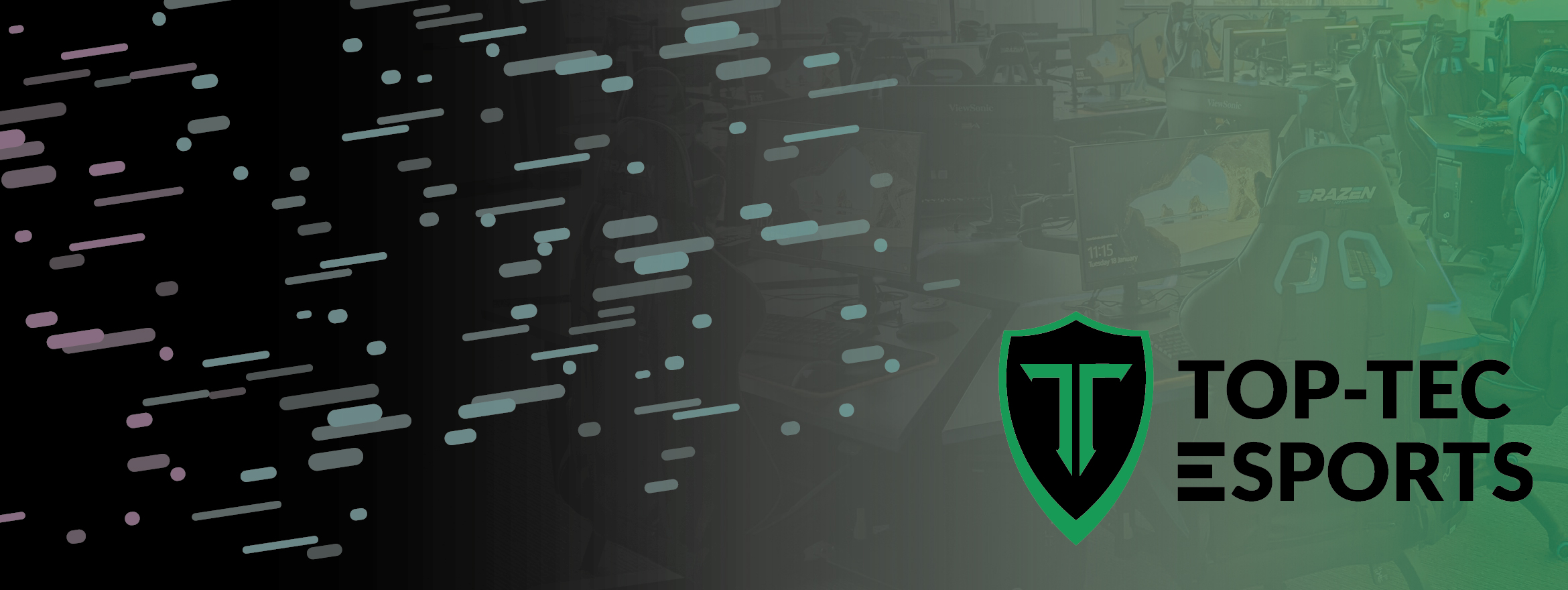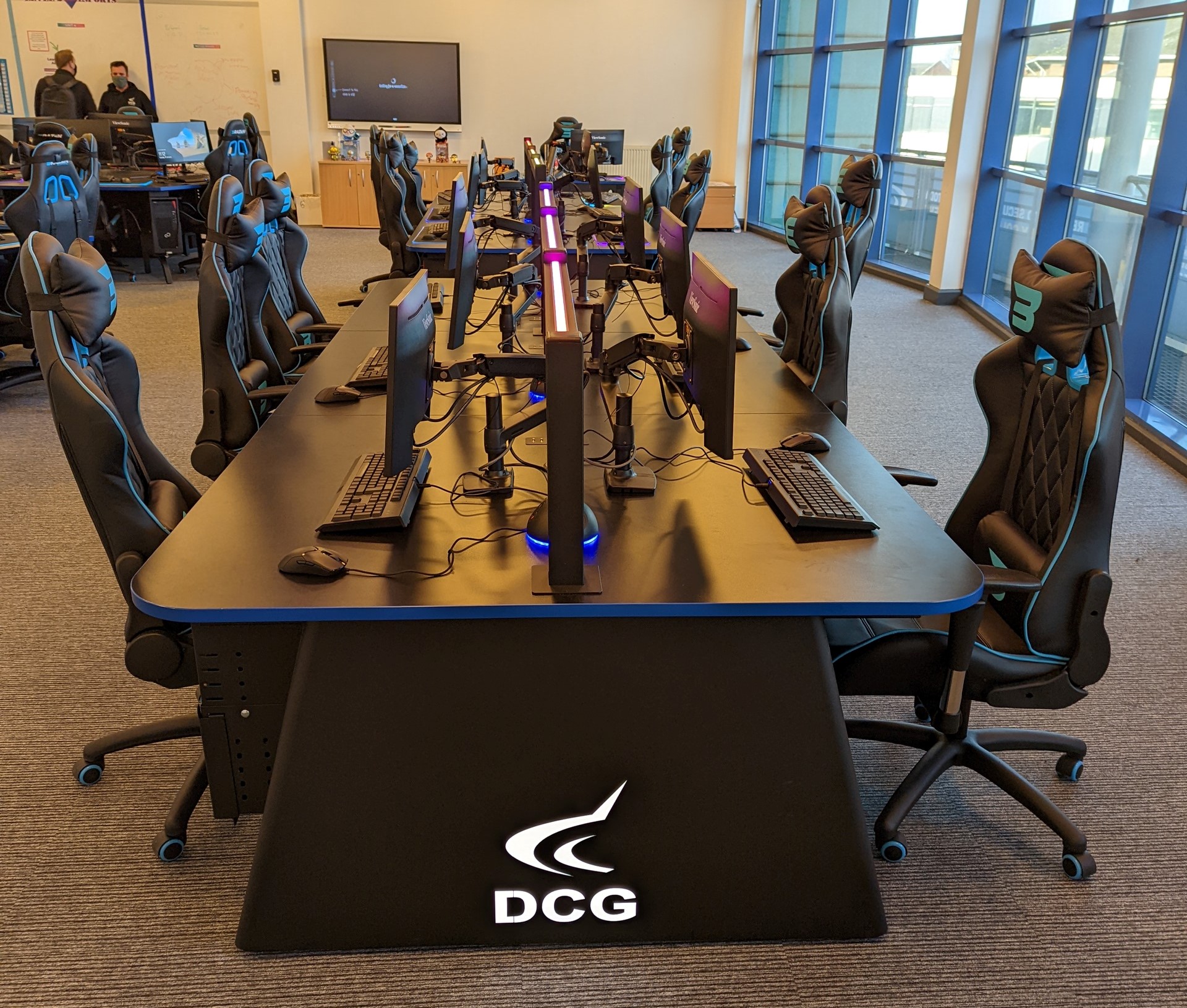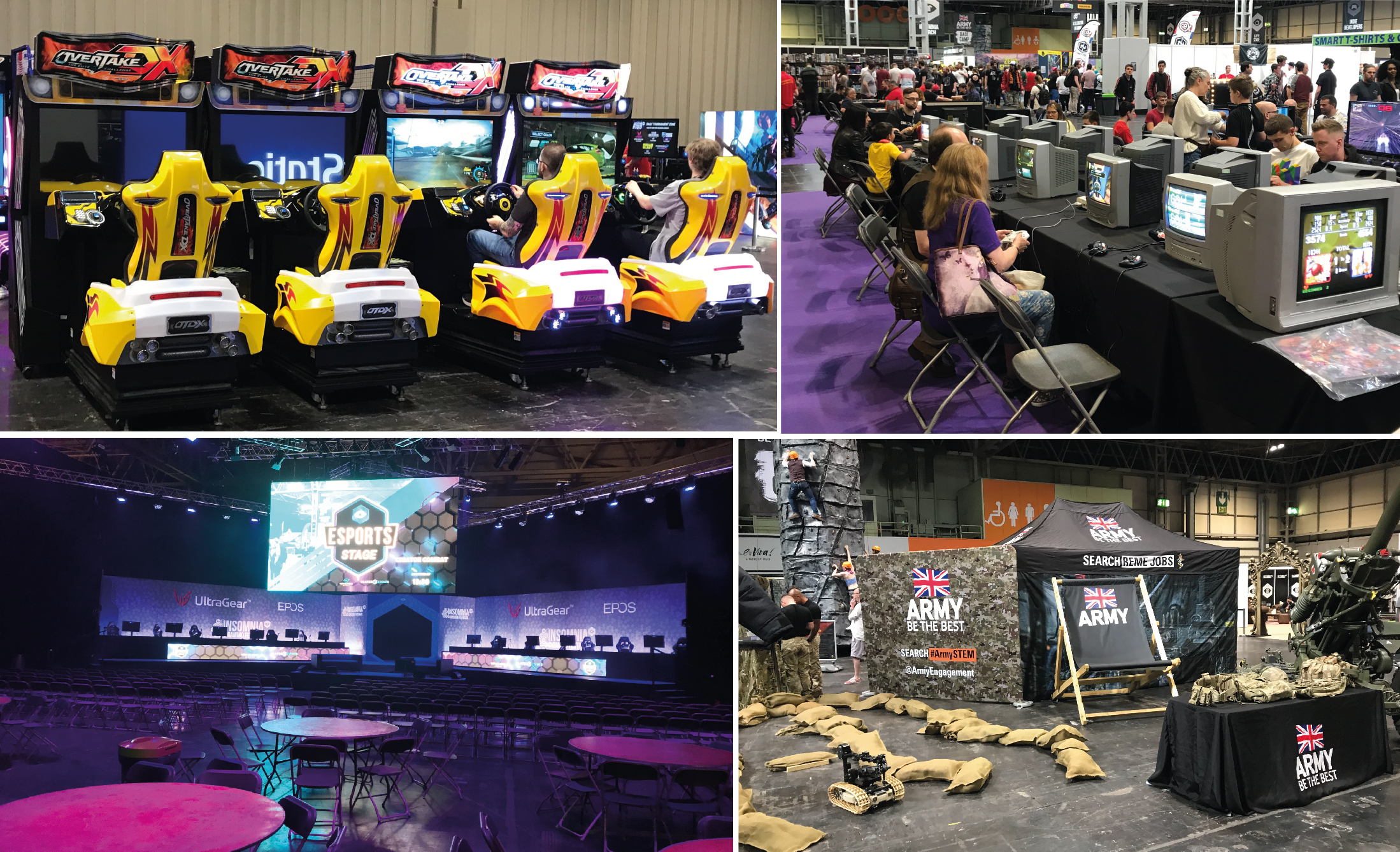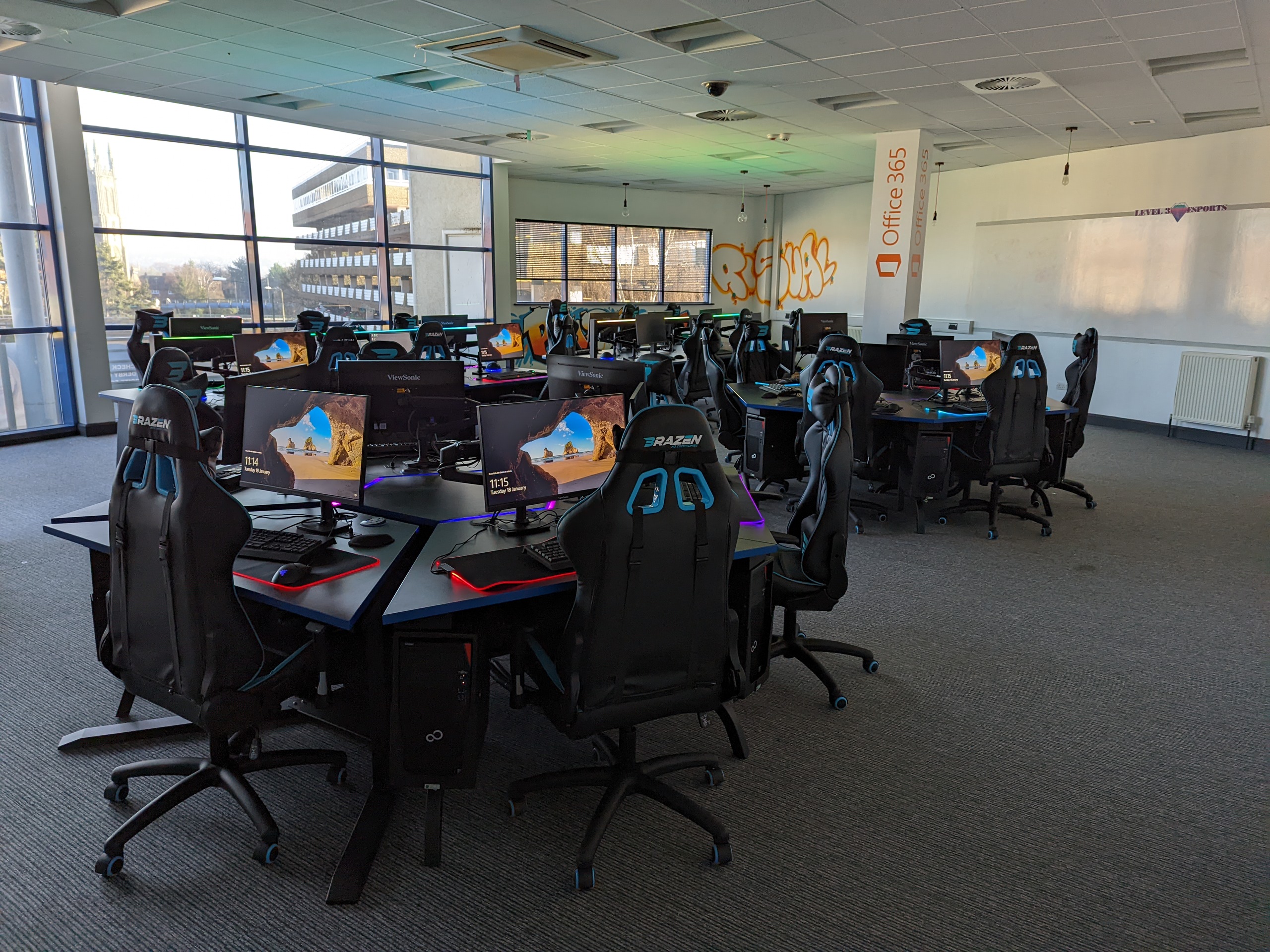
There has been a huge rise in Esports around the globe and so the need for a dedicated esports space. What was seen as playing computer games has now turned into an industry of professional teams playing in competitive video game tournaments. In fact, the industry is on route to exceeding $200 billion by 2023 (Allan, 2022) and there are conversations around Esports having an Olympic debut. Additionally, its participants learn a variety of skills and, tournament champions can win as much as $25 million (JD Sports, 2019).
Esports in Education
“Currently Esports is the biggest growth sector within education.” – Pearson
The education sector has begun to recognise the rapid expansion of Esports. As a result, it has started introducing Esports courses and career pathway programs into its institutions. It has become an exciting addition to curriculums in colleges and universities. Six thousand students are predicted to start Esports courses in the UK next year (Esports in Education Annual Summit, 2022).
Esports training centres and an esports space has also being set-up to further develop gaming skills and professional qualifications. Moreover, courses such as the Esports BTEC Level 3 are being developed to show the visibility of these skills.
Esports in education are also seen as a way for students who do not thrive in traditional subjects to further their professional development in an environment that is more comfortable to them. It gives them the chance to explore other areas of potential interest and develop skills that would have been difficult for them to acquire in standard classroom settings.
Alongside these new courses, schools are offering Esports after school clubs. Therefore, providing a healthy means for students to relax while promoting teamwork and social skills.
Although the idea of going to school to play games might appear unusual, the aim is to prepare students for a digital future. In addition, it give them an early start to access the benefits of being a part of this industry

What do these courses involve?
Esports courses have a different approach to traditional subject areas. They have an all-encompassing structure that lets students learn not only game tactics, but also develop an understanding of other areas in the industry. Most courses allow the students gain knowledge in digital marketing, team building and management, event planning, Esports culture and public relations.
Esports courses in UK universities, run for a standard 3-year period.
- The first year is made up of introductory and foundational modules. This allow students have a general idea about the Esports experience, streaming techniques, and the business of competitive gaming.
- The second year goes more in-depth into strategy and coaching techniques, leadership and team dynamics, commercial sponsorships and skills that are in demand throughout the sector.
- The final year often focuses on fully immersing students into the world of Esports. Students combine all they have learned in the first two years and begin to engage in real-life experiences. They will undertake assignments such as working in teams to play games in practical professional settings and creating their own commercial gaming events.
Several schools also include optional work experience opportunities into the courses to assist their students with an easy transition to a career in Esports while studying.
Are there career opportunities in Esports?
There are countless employment and career paths being established as the industry expands globally. Thus, there is a need for people with specific qualifications and expertise to fill up these positions.
As a new industry, employers are aware that years of industry experience is a rarity. Hence, they look out for candidates with transferrable skills. This is perfect for students because, in addition to the experiences gained from school, players can also develop a variety of skills through practice. For instance, strategic thinking, dexterity, multi-tasking, problem solving and quick processing ability.
One does not have to be a pro-gamer to succeed in the industry. As long as there is a passion, dedication, and knowledge of Esports, there are limitless career opportunities. These vary from tech, STEM and engineering to photography journalism, operations, coaching, administration, and marketing.
Insomnia Gaming Festival
Insomnia Gaming festival is one of the largest gaming festivals in the UK and is held at the NEC in Birmingham. The massive event unites gaming lovers for a weekend of entertainment, gaming competitions and interactive exhibitions. It has something for everybody by providing Bring Your Own Computer playing halls, Retro Gaming stalls and even indoor camping.
Successful streamers and gamers within the industry are invited in panel discussions, talks and speeches to give other players an insight into the business. The festival is also an excellent platform for networking and career development. Universities and the public sector organisations present and are on the look out to recruit talented gamers into their industries.

How is TOP-TEC becoming involved?
At TOP-TEC, we have observed the need for an Esports space in education and are focused on finding solutions to meet these needs.
Creating a Esports Space for Derby College Group
We recently worked on a project with Derby College Group who started offering one of their first Esports courses. We helped create an environment where the students could be fully immersed in the Esports gaming culture. Also, while incorporating traditional teaching methods for lecturers to present in the classroom. It was an exciting project where we provided customised cluster style tables to encourage teamwork between students and to suit the university’s needs.
TOP-TEC products offer fantastic flexibility, and we are working on more creative ways to use our products in an Esports space. We look forward to collaborating with colleges and universities as they become more aware of the need to invest in Esports education.

Are you looking at creating a dedicated Esports space? Contact Us Today
Get in touch via email or by giving us a call on +44 (0)121 783 3838 to discuss your requirements
If you have found this blog helpful, then you may also be interested in our previous blog post on Transitioning From Education to the Workplace.


